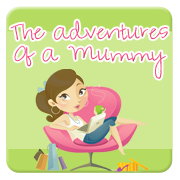What does Mid-Autumn Festival mean to me in a "always Summer Singapore?"
The Mid-Autumn Festival is looked upon at different perspectives as I grew older.
When I was little, it means looking forward to carrying paper lantern. I think it's just me, but my paper lanterns always get burnt very fast. It's either I am clumsy or I'm not fated to carry paper lanterns. Then paper lanterns made way for cellophane designed lanterns. I carried that and..........conclusion - I'm clumsy. Yup! My lantern got burnt too!
As the years went by, asked mom for the meaning for the full moon and she told me the story about Chang E (read below for extracted stories). I didn't pay much attention to the story but remembered about her pet rabbit. Then I proudly say "I'm born in the Year of the Rabbit". What does that mean? I don't know.. I was only a kid spouting rubbish. (and still spouting rubbish)
Then I was told about the story of the rebellion, and secretly wished there was a note telling me my future (who I was to marry). Yah lah... now marry wrong man lah! Haha! Kidding!!
And yes, as a little kid I love mooncakes. I love those plain ones without yolks - cheap taste what!?
When I started falling in love....... going out with then boyfriend now husband. He told me that Mid-Autumn Festival means admiring the moon with your loved one. Wow! He actually said those sweet words. (no wonder I got conned into marrying him) And I remember every year, if I was in Singapore we'll go out to "see" the moon. One year I was sad that I will not be in Singapore to admire the moon with him. Then he said "never mind, you open your hotel window and see. I see from here lor....Then we're both admiring the moon." At that time, I wonder if he really went to admire the moon or he was probably snoring away, while I stupidly look at the round moon myself.
Sound very romantic hor?
After we got married 4 years later, we never did admire the moon together. I think he'll snap back at me "siao ah... you want to see, you go and see lah!"
Married with kids. Now it means buying a lantern for my daughter. Only to find her afraid of carrying lanterns. Brought her to those festivals for 2 years, she'll eat those mini mooncakes and run away from the lanterns that we got from her. Finally lesson learnt! I'm not going to buy anymore lanterns for her. But grandma bought her one this year. She happily held onto the lantern....
6th October 2006 :
Hubby came home early and was so excited and showed her the Whistling Sparklers he bought for her. Mom was not at all pleased, saying that I'm still doing my confinement period blah blah. But I needed to get out of the house, and should think it's harmless since I'm only out in the playground. Coinceidently, dad and bro was here so they went down as well.
Hubby asked "where'e the moon?" Athena : "there..." and pointed to the round light in the playground.
Hubby lighted the Sparklers, and girl was seen running away. Very funny.... I was videotaping, and the girl actually ran away very far.
Then we asked her to carry her lanterns which she did for a short while and then put it on Aricia's pram "for my sister to play "
We didn't bring down any mooncakes to eat. Not much left to share amongst them 3 adults and 1 kid.
In half an hour's time, we went back home.....since she wasn't doing what she was supposed to do. And we were sick of the hazy smell!
**********************************************************************************************
Extracted from http://en.wikipedia.org/wiki/Mid-Autumn_Festival
The Mid-Autumn Festival (Traditional Chinese: 中秋節, Simplified Chinese: 中秋节; pinyin: Zhōngqiūjié; Korean: Ch'usǒk or Chuseok 추석/秋夕; Vietnamese Tết Trung Thu; Taiwanese Tiong Chhiu;also known as the Moon Festival, Mooncake Festival, or the August Moon Festival. In Hong Kong, Singapore, Taiwan, and Malaysia, it may be referred to as the Lantern Festival, similar in name to a different festival which falls on the fifteenth day of the Lunar New Year) is a popular Asian celebration of abundance and togetherness, dating back over 3,000 years to China's Zhou Dynasty.
The Festival falls on the 15th day of the lunar month 8 of the lunar calendar (usually around mid- or late-September in the Gregorian Calendar), a date that parallels the Autumn Equinox of the solar calendar. At this time, the moon is at its fullest and brightest, marking an ideal time to celebrate the abundance of the summer's harvest. The traditional food of this festival is the moon cake, of which there are many different varieties.
The Mid-Autumn Festival is one of the two most important holidays in the Lunar calendar (the other being the Lunar New Year), and is a legal holiday in several countries. Farmers celebrate the end of the summer harvesting season on this date. Traditionally, on this day, Asian family members and friends will gather to admire the bright mid-autumn harvest moon, and eat moon cakes and pomeloes together. It is also common to have barbecues outside under the moon, and to put pomelo rinds on one's head. Brightly lit lanterns are often carried around by children. Together with the celebration, there appear some special customs in different parts of the country, such as burning incense, planting sweet-olive trees, lighting lanterns on towers, and fire dragon dances. Shops selling mooncakes, before the festival, often display pictures of Chang'e, floating to the moon
**************************************************************************
Extracted from : http://www.chinavoc.com/festivals/Midautumn.htm
About Mooncakes :
There is this story about the moon-cake. during the Yuan dynasty (A.D. 1280-1368) China was ruled by the Mongolian people. Leaders from the preceding Sung dynasty (A.D. 960-1280) were unhappy at submitting to the foreign rule, and set how to coordinate the rebellion without being discovered. The leaders of the rebellion, knowing that the Moon Festival was drawing near, ordered the making of special cakes. Backed into each moon caked was a message with the outline of the attack. On the night of the Moon Festival, the rebels successfully attached and overthrew the government. Today, moon cakes are eaten to commemorate this legend and was called the Moon Cake.
For generations, moon cakes have been made with sweet fillings of nuts, mashed red beans, lotus-seed paste or Chinese dates, wrapped in a pastry. Sometimes a cooked egg yolk can be found in the middle of the rich tasting dessert. People compare moon cakes to the plum pudding and fruit cakes which are served in the English holiday seasons.
Nowadays, there are hundreds varieties of moon cakes on sale a month before the arrival of Moon Festival.
About Folklore :
Folklore about the origin of the festival go like this: In remote antiquity, there were ten suns rising in the sky, which scorched all crops and drove people into dire poverty. A hero named Hou Yi was much worried about this, he ascended to the top of the Kunlun Mountain and, directing his superhuman strength to full extent, drew his extraordinary bow and shot down the nine superfluous suns one after another. He also ordered the last sun to rise and set according to time. For this reason, he was respected and loved by the people and lots of people of ideals and integrity came to him to learn martial arts from him. A person named Peng Meng lurked in them.
Hou Yi had a beautiful and kindhearted wife named Chang E. One day on his way to the Kunlun Mountain to call on friends, he ran upon the Empress of Heaven Wangmu who was passing by. Empress Wangmu presented to him a parcel of elixir, by taking which, it was said, one would ascend immediately to heaven and become a celestial being. Hou Yi, however, hated to part with his wife. So he gave the elixir to Chang E to treasure for the time being. Chang E hid the parcel in a treasure box at her dressing table when, unexpectedly, it was seen by Peng Meng.
One day when Hou Yi led his disciples to go hunting, Peng Meng, sword in hand, rushed into the inner chamber and forced Chang E to hand over the elixir. Aware that she was unable to defeat Peng Meng, Chang E made a prompt decision at that critical moment. She turned round to open her treasure box, took up the elixir and swallowed it in one gulp. As soon as she swallowed the elixir her body floated off the ground, dashed out of the window and flew towards heaven. Peng Meng escaped.
When Hou Yi returned home at dark, he knew from the maidservants what had happened. Overcome with grief, Hou Yi looked up into the night sky and called out the name of his beloved wife when, to his surprise, he found that the moon was especially clear and bight and on it there was a swaying shadow that was exactly like his wife. He tried his best to chase after the moon. But as he ran, the moon retreated; as he withdrew, the moon came back. He could not get to the moon at all.
Thinking of his wife day and night, Hou Yi then had an incense table arranged in the back garden that Chang E loved. Putting on the table sweetmeats and fresh fruits Chang E enjoyed most, Hou Yi held at a distance a memorial ceremony for Chang E who was sentimentally attached to him in the palace of the moon.
When people heard of the story that Chang E had turned into a celestial being, they arranged the incense table in the moonlight one after another and prayed kindhearted Chang E for good fortune and peace. From then on the custom of worshiping the moon spread among the people.
People in different places follow various customs, but all show their love and longing for a better life. Today people will enjoy the full moon and eat moon cakes on that day.
The moon looks extremely round, big and bright on the 15th day of each lunar month. People selected the August 15 to celebrate because it is a season when crops and fruits are all ripe and weather pleasant. On the Mid-Autumn Festival, all family members or friends meet outside, putting food on tables and looking up at the sky while talking about life. How splendid a moment it is!
Friday, October 6, 2006
Subscribe to:
Post Comments (Atom)




No comments:
Post a Comment